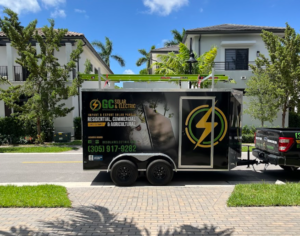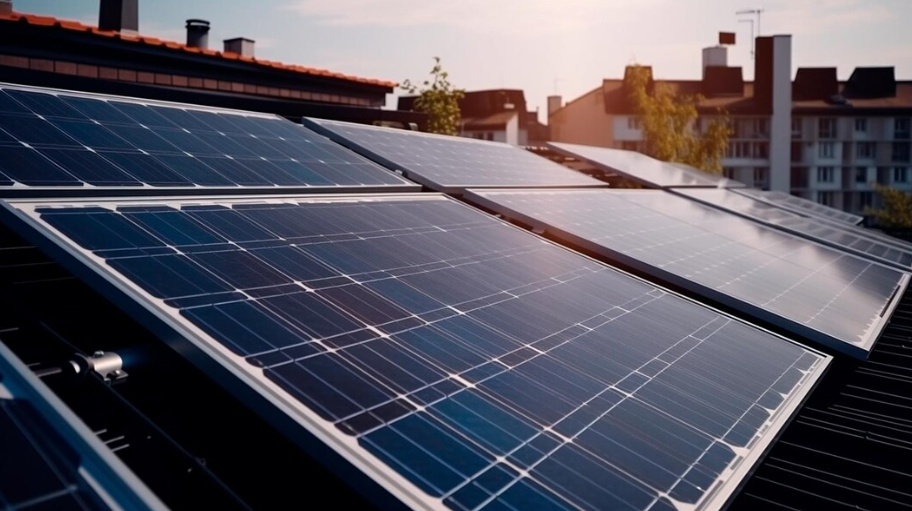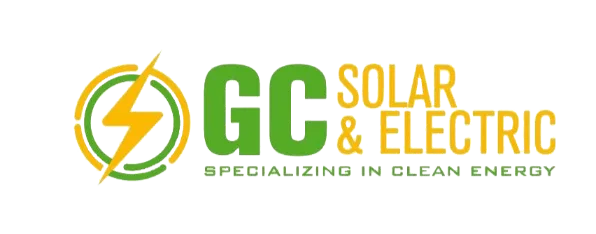
Solar installations are becoming more popular as the interest in renewable energy increases. It is important to understand the role of each component when considering Solar Panel Installation, whether it is for your home or for a commercial building. GC Solar & Electric is your go-to provider for quality Solar Supplies and installations, and this blog explores the critical Solar Equipment you need to know.

Solar Panels
A solar power system is incomplete without solar panels. Photovoltaic cells generate direct current (DC) electricity by capturing sunlight. In order to maximize efficiency and durability, homeowners should invest in high-quality solar panels. Solar Panel Installation is GC Solar & Electric’s specialty, providing top-notch panels that meet various energy requirements. For a Commercial Solar Installation, the size and number of panels are sized to meet higher energy demands.
Inverters
The inverter is a crucial piece of Solar Equipment that converts the DC electricity generated by the solar panels into alternating current (AC) electricity, which is used by household appliances and the electrical grid. There are several types of inverters, including string inverters, microinverters, and power optimizers. Each has its advantages depending on the system’s size and design. Proper selection and installation of inverters are essential for the efficiency and longevity of the solar system. GC Solar & Electric offers expert advice and installation services to ensure your inverter meets your specific needs.
Mounting Systems
Rooftop or ground-mounted solar panels are secured by mounting systems. By positioning the panels at the optimal angle, they maximize sunlight capture. Mounting systems are designed to withstand various weather conditions and support the panels’ weight. It is crucial to the stability and efficiency of a solar array to select the right mounting system, whether it is for a residential installation or a commercial one. A comprehensive range of solar installation services is provided by GC Solar & Electric, including reliable mounting solutions.
Solar Batteries (Optional)
Solar batteries store excess energy generated by the solar panels for use when sunlight is not available, such as at night or during cloudy weather. While not essential for all systems, solar batteries can enhance energy independence and provide backup power during outages. For homeowners interested in maximizing their solar investment, integrating solar batteries can be a valuable addition. GC Solar & Electric can assist in selecting and installing the right battery solutions for your needs.
Charge Controllers
In systems with solar batteries, charge controllers regulate the voltage and current flowing from the solar panels to the batteries. They prevent overcharging and ensure that the batteries are charged safely and efficiently. While less common in grid-tied systems, charge controllers are vital for off-grid setups. GC Solar & Electric offers expert guidance on integrating charge controllers into your solar system, ensuring optimal performance and longevity.
The solar supplies and equipment we provide at GC Solar & Electric are of the highest quality. Solar Panel Installation and Commercial Solar Installation are both expertise areas of their team. You can trust GC Solar & Electric to select and install all the components of your solar system to the highest standards, whether you’re a homeowner or a business.
What types of solar panels are available for residential use?
Residential solar panels come in various types, including monocrystalline, polycrystalline, and thin-film. Monocrystalline panels are known for their high efficiency and sleek appearance, while polycrystalline panels offer a more budget-friendly option. Thin-film panels are less common but can be suitable for specific applications.
How does the inverter affect the performance of a solar system?
The inverter is critical as it converts DC electricity from the solar panels into AC electricity used by your home. The efficiency and type of inverter can impact the overall performance of your system. Choosing the right inverter ensures optimal energy conversion and system efficiency.
Are solar batteries necessary for a solar power system?
Solar batteries are not essential for all systems but can be beneficial if you want to store excess energy for use when the sun is not shining. They enhance energy independence and provide backup power during outages, making them a valuable addition for some homeowners.
What factors should be considered when selecting a mounting system?
When selecting a mounting system, consider factors such as the type of roof, the angle of installation, and local weather conditions. A reliable mounting system ensures that the panels are securely attached and positioned for maximum solar exposure.
How can I find out the costs associated with a solar power system?
To get detailed information on the costs associated with Solar Panel Installation and other Solar Equipment, visit the GC Solar & Electric website. They offer consultations and quotes tailored to your specific needs and energy goals.
For more information about costs and to schedule your Solar Installation, visit the GC Solar & Electric website.

